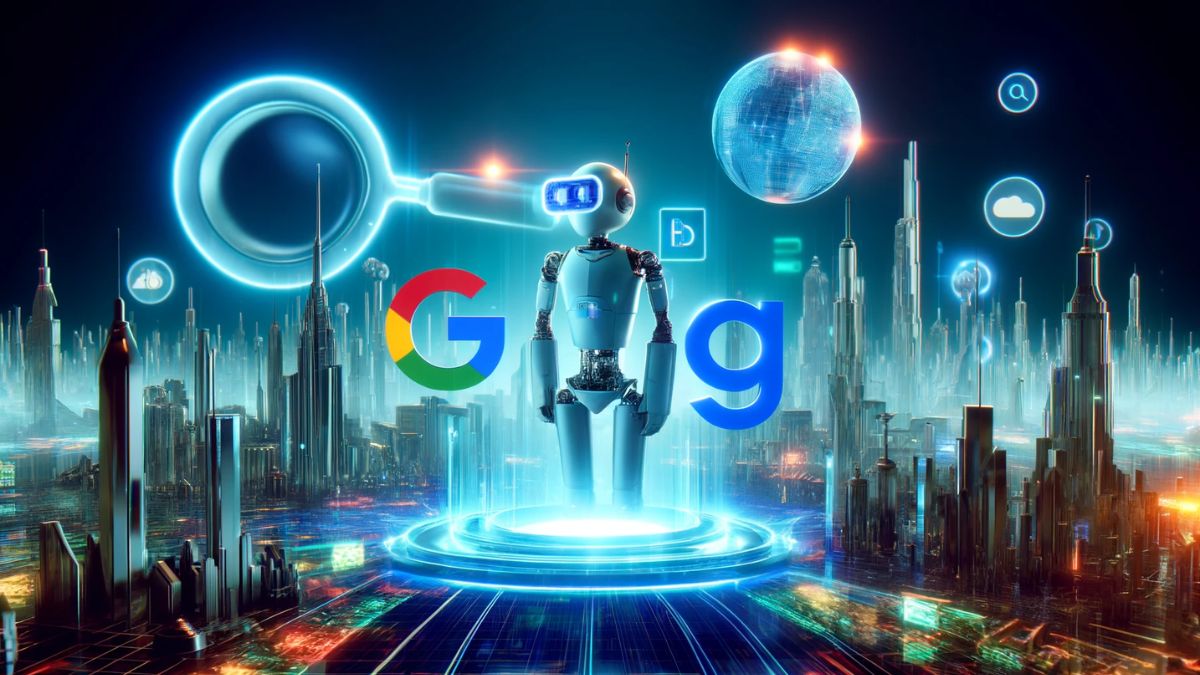
The landscape of digital marketing and online visibility is continuously evolving, with search engine optimization (SEO) playing a pivotal role for businesses and content creators striving to rank higher in search engine results. However, the advent of advanced AI technologies like ChatGPT has sparked conversations about the potential decline of traditional search engines. This blog explores the future of SEO in a world where ChatGPT might dominate, examining the implications, challenges, and opportunities for businesses and marketers.
Table of Contents
Introduction
Search engine optimization (SEO) has long been the cornerstone of online visibility, with businesses investing significant resources to ensure their content ranks high on search engines like Google and Bing. However, the rapid development of artificial intelligence (AI) technologies, particularly ChatGPT by OpenAI, poses a potential disruption to the traditional search engine model. If AI-driven tools like ChatGPT become the primary means of information retrieval, the future of SEO could look very different. This blog delves into this potential future, exploring how SEO might evolve and what strategies businesses will need to adopt to stay relevant.
The Rise of AI and ChatGPT
Evolution of AI in Search
Artificial intelligence has been integrated into search engines for years, enhancing the accuracy and relevance of search results through complex algorithms. AI technologies like natural language processing (NLP) and machine learning (ML) have enabled search engines to understand and interpret user queries more effectively. Google’s BERT and RankBrain are prime examples of how AI has improved search engine capabilities, leading to more precise and contextually relevant search results.
ChatGPT: A Game Changer
ChatGPT, developed by OpenAI, represents a significant leap in AI technology. Unlike traditional search engines that rely on indexing and ranking webpages, ChatGPT can generate human-like responses to user queries in real-time. This conversational AI model understands context, generates coherent answers, and provides a more interactive and personalized user experience. Its ability to synthesize information from vast datasets and deliver it in a conversational format challenges the conventional search engine paradigm.
Current State of SEO
SEO Fundamentals
At its core, SEO involves optimizing content to improve its visibility in search engine results. This includes on-page SEO (keyword optimization, meta tags, content quality), off-page SEO (backlinks, social signals), and technical SEO (site speed, mobile-friendliness, structured data). The goal is to align content with search engine algorithms to rank higher for relevant queries, thereby driving organic traffic.
The Role of Search Engines
Search engines like Google and Bing act as intermediaries between users and content creators. They crawl and index webpages, using complex algorithms to rank them based on relevance and quality. SEO professionals focus on understanding these algorithms and optimizing content to meet their criteria. The result is a dynamic and competitive landscape where businesses strive to achieve and maintain top rankings for relevant keywords.
Potential Decline of Traditional Search Engines
Shifts in User Behavior
As AI technologies like ChatGPT become more prevalent, user behavior is likely to shift. Rather than typing queries into a search engine and sifting through pages of results, users can interact with AI models to receive direct, concise answers. This shift towards conversational AI could reduce reliance on traditional search engines, as users increasingly prefer the convenience and efficiency of AI-generated responses.
AI's Ability to Answer Queries
ChatGPT and similar AI models have the capability to understand complex queries and provide detailed, contextually accurate answers. This eliminates the need for users to visit multiple websites to gather information. As AI models improve, their ability to provide comprehensive and reliable answers will further diminish the role of traditional search engines, potentially rendering them obsolete.
The Future of SEO
Content Optimization for AI
In a world dominated by AI-driven tools like ChatGPT, SEO strategies will need to adapt. Instead of focusing solely on search engine algorithms, content creators will need to optimize their content for AI models. This involves understanding how AI interprets and processes information and ensuring that content is structured and formatted in a way that AI can easily digest and present to users.
- Natural Language Optimization: Creating content that mimics natural human conversation will be crucial. This means focusing on clarity, coherence, and contextual relevance.
- Structured Data: Using structured data (schema markup) to provide AI with clear, machine-readable information can enhance content visibility and accuracy.
Conversational AI and User Experience
The rise of conversational AI will place a greater emphasis on user experience. Content will need to be engaging, interactive, and capable of addressing user needs effectively. This means developing content that anticipates user queries and provides comprehensive answers in a conversational tone.
- Interactive Content: Incorporating interactive elements like chatbots, quizzes, and dynamic content can enhance user engagement and satisfaction.
- Personalization: Leveraging AI to deliver personalized content experiences based on user preferences and behavior will be key to maintaining relevance.
Adapting to AI-Driven Algorithms
While traditional search engine algorithms may decline in importance, AI-driven algorithms will become the new standard. SEO professionals will need to understand and adapt to these algorithms, which will likely prioritize user engagement, content quality, and contextual relevance over traditional ranking factors.
- User Engagement: Metrics like time on page, bounce rate, and user interaction will become more important indicators of content quality.
- Content Quality: High-quality, authoritative content that provides value to users will be favored by AI algorithms.
New Metrics for Success
Engagement and Retention
As AI becomes the primary means of information retrieval, traditional metrics like page views and click-through rates will become less relevant. Instead, engagement and retention metrics will take center stage. This includes measuring how long users interact with content, the depth of their engagement, and their likelihood to return.
- Time on Page: Longer engagement times indicate that users find the content valuable and engaging.
- Return Visits: High return visit rates suggest that content is meeting user needs and expectations.
Relevance and Authority
In an AI-dominated landscape, content relevance and authority will be crucial. AI models like ChatGPT prioritize accurate and reliable information, so content creators will need to establish themselves as authoritative sources in their respective fields.
- Citations and References: Citing reputable sources and providing evidence-based information will enhance content credibility.
- Expertise and Authorship: Demonstrating expertise through author credentials and industry recognition will boost content authority.
Challenges and Opportunities
Ethical Considerations
The rise of AI in information retrieval brings ethical considerations to the forefront. Ensuring that AI-generated content is accurate, unbiased, and transparent is essential to maintain user trust.
- Bias Mitigation: Addressing potential biases in AI algorithms and training data is crucial to provide fair and balanced information.
- Transparency: Clearly indicating when content is AI-generated and providing sources for information can enhance transparency and trust.
Innovation in Content Creation
The shift towards AI-driven information retrieval presents opportunities for innovation in content creation. Businesses and content creators can leverage AI tools to enhance their content strategies and deliver more value to users.
- AI-Assisted Content Creation: Using AI tools to generate ideas, draft content, and optimize for user engagement can streamline content creation processes.
- Multimedia Integration: Incorporating multimedia elements like videos, infographics, and interactive tools can enhance content engagement and appeal.
Conclusion
The potential decline of traditional search engines in favor of AI-driven tools like ChatGPT represents a significant shift in the digital landscape. As conversational AI becomes the primary means of information retrieval, SEO strategies will need to evolve to meet new challenges and opportunities. Content creators will need to focus on optimizing for AI, enhancing user experience, and establishing authority and relevance. By embracing these changes and leveraging AI technologies, businesses can continue to thrive in the ever-evolving world of digital marketing.
The future of SEO in a world dominated by ChatGPT is both exciting and uncertain. While traditional search engines may decline, the principles of delivering high-quality, relevant, and engaging content will remain paramount. By adapting to the new landscape and staying ahead of technological advancements, businesses can ensure their content continues to reach and resonate with their target audiences.

Marcus D began his digital marketing career in 2009, specializing in SEO and online visibility. He has helped over 3,000 websites boost traffic and rankings through SEO, web design, content, and PPC strategies. At The Ocean Marketing, he continues to use his expertise to drive measurable growth for businesses.

